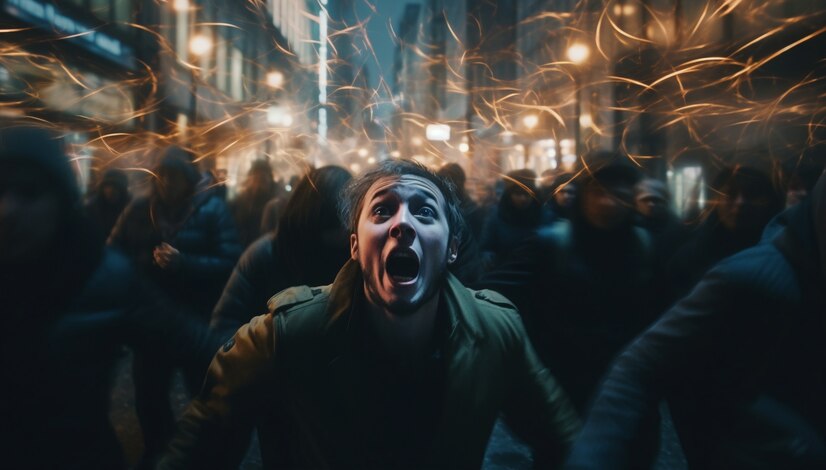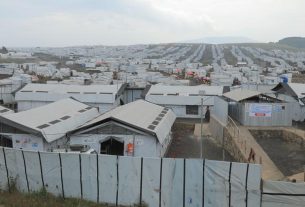Maputo, Mozambique – December 25, 2024 — A violent outbreak at a prison in Mozambique’s capital, Maputo, has resulted in the deaths of at least 33 individuals, with 15 others reported injured. Over 1,500 prisoners managed to escape, in what appears to be a coordinated riot, adding to the ongoing tension that has been escalating across the country since the disputed October elections.
The Incident
The disturbance reportedly took place inside the Maputo Central Prison on December 25, where inmates overpowered guards, seized weapons, and initiated their escape. Local sources indicate that the prisoners took control of AK-47 rifles from the authorities, aiding their flight. With fewer guards on duty due to the Christmas holiday season, many of the escapees were able to flee undetected.
Mozambique’s police general commander, Bernardino Rafael, confirmed that 150 prisoners had been recaptured as of December 25, although the majority remain at large. Rafael attributed the riot and escape to the protests taking place outside the prison, further amplifying tensions in the capital. However, Justice Minister Helena Kida clarified that the unrest was initiated within the prison itself, and there was no direct connection to the ongoing post-election protests.
Escalating Unrest Linked to Election Discontent
Mozambique is currently grappling with increasing unrest following the controversial general elections held in October 2024. These elections resulted in the extension of Frelimo, the long-ruling party, to another term in power. Opposition groups and their supporters have alleged electoral fraud, fueling widespread protests and violence.
The prison riot coincides with this ongoing civil unrest, which has already led to numerous casualties. According to reports, at least 21 individuals, including two police officers, were killed during two days of violence in Maputo over December 23 and 24, linked to the election results. Violence has targeted key infrastructure, including police stations, banks, and petrol stations, indicating broader public dissatisfaction.
Since the elections on October 21, the death toll from unrest has reached 151, as confirmed by Plataforma Decide, an election monitoring organization. The surge in violence reflects the underlying political tensions that have not been addressed in the months following the controversial vote.
Government Response and Calls for Reform
Mozambican authorities have attributed the prison riot to the protests outside the correctional facility. However, the differing statements by government officials regarding the root cause of the unrest have raised concerns about the handling of the crisis.
Adriano Nuvunga, the director of the Center for Democracy and Human Rights in Mozambique, expressed his concerns on social media, noting that this “shocking incident” raised significant questions about the state of security in Mozambique. He called for greater cooperation between the government, civil society, and international partners to ensure public safety and address the systemic issues contributing to the unrest.
The prison riot and mass escape highlight significant vulnerabilities within Mozambique’s justice and security systems. The fact that prisoners were able to overpower armed guards and escape en masse suggests weaknesses in both the prison infrastructure and broader law enforcement capabilities. This raises questions about the ability of authorities to effectively manage and secure correctional facilities in the context of increasing political instability.
Broader Context of Mozambique’s Political Landscape
The turmoil in Mozambique comes at a time when the country is still recovering from a decades-long civil war that officially ended in 1992. Frelimo’s political dominance has often been contested by opposition parties, notably Renamo, which accuses the government of suppressing political opposition and undermining democratic processes. The political climate remains tense, and many of the country’s citizens continue to express frustration with the lack of political plurality and the government’s handling of election results.
In addition to the political unrest, Mozambique faces deep economic challenges, including high levels of poverty and inequality. These economic struggles, combined with political discontent, contribute to an environment where frustrations often escalate into violent acts, such as the recent prison riot.
Conclusion
The prison riot and mass escape in Maputo on December 25, 2024, serve as a stark reminder of the growing instability in Mozambique. While government officials attempt to downplay the link between the riot and political protests, the increasing violence and rising death toll underscore the deepening crisis in the country. With unresolved issues related to the October elections and widespread unrest, the situation in Mozambique remains precarious. Both domestic authorities and international stakeholders must urgently address the underlying causes of the crisis to restore stability and security.
Picture by Freepik



